We are living through a period in which Western democracies are experiencing significant upheaval and, accompanying this, exceptionally high levels of corruption. Anyone who has been paying attention in recent years, through learning about the deceptions perpetrated by authorities with respect to JFK, 9/11, and COVID-19, will have realised this. Put simply, those groups who hold preponderant power across the West have become heavily reliant upon structural deep events and state crimes against democracy in order to maintain power. What this means is that they are willing and capable of carrying out major crimes with the objective of deceiving and manipulating publics. JFK was assassinated in order to stop him from leading the American people out of Vietnam and out of the Cold War. The 9/11 event was a ‘manufactured war trigger’ designed to get the ball rolling on a phase of renewed belligerence in the international system - remember Wesley Clark’s ‘seven countries in five years’ revelation; whilst the COVID-19 constructed ‘pandemic’ was part of enabling policy agendas designed to avert financial crisis and simultaneously restructure Western societies through sharply increased centralisation. For anyone struggling to get their head around these epic deceptions I strongly recommend James Douglas’ The Unspeakable in the case of the JFK assassination, the International Centre for 9/11 Justice film Peace, War and 9/11 and, for the COVID-19 event, Kees van Der Pijl’s States of Emergency and Paul Shreyer’s Chronicle of a Crisis Foretold.
Central to these phenomena are the politics of fear and crisis, designed to manipulate people’s perception of what is a threat to them so that they live in perpetual fear of an imagined threat. Fear of communism had to be maintained, hence the assassination of JFK; the imagined threat of Islamic fundamentalist terrorism was essential to mobilise Western publics in support of multiple regime-change wars; and the construction of panic over a virus underpinned the drives to consolidate political and economic power. In the final case, these drives are very much ongoing as can be seen, for example, with the Pandemic Preparedness Agenda and the so-called Censorship Industrial Complex.
Part and parcel of these processes is the need to shut people up. Creation and maintenance of these fears and threats in the minds of the people involves not only the propaganda of promotion but also the propaganda of silencing dissident voices. As I have written elsewhere, shutting down dissent involves strategies of censorship, smearing and coercion. In the recent Symposium ‘Silencing the Academics’, organised by the Organisation for Propaganda Studies, Propaganda in Focus and UKColumn, we detailed key examples of the nefarious tactics authorities employ in this regard.
The Symposium included Professors Daniel Broudy, Jared Ball and Oliver Boyd-Barrett, as well as Dr David Miller and myself (both former full professors). The individual talks can be viewed on the new Rumble channel for Propaganda in Focus. All of the talks dealt with the various ways in which academia becomes ideologically managed and, in particular, the ruthless approaches employed in order to stamp out dissent. For example, David Miller described his ordeal at the hands of the Israel lobby
who managed a two year character assassination campaign against him at the University Of Bristol. This led, ultimately, to the University firing him on spurious grounds. David’s case is a text book example of how far powerful actors will go in order to silence legitimate academic debate. But it also illustrates a successful fight back; just this last month David was vindicated in an industrial tribunal which found that the University of Bristol had wrongfully dismissed him. In winning this case, David also established anti-Zionism as a protected belief, thereby guaranteeing the freedom to criticise it. This was a major victory.
My own presentation at the symposium detailed the case of the Working Group on Syria, Media and Propaganda and the ferocious smear campaign unleashed by mainstream media including as The Times of London and the Huffington Post.
Our work on propaganda and the war in Syria in 2017 and 2018 had stumbled upon a UK-led strategic deception regarding alleged chemical weapons attacks in Syria and, perhaps unsurprisingly, no punches were pulled in terms of trying to frighten us off researching the issue. As with the Miller case, we stood our ground and are now, in the grand scheme of things, vindicated. For example, whistleblowers from the Organisation for the Prohibition of Chemical Weapons, who had been tasked with investigating the alleged chemical weapons attacks, emerged in 2019 and confirmed that at least one investigation had been manipulated. Today, the issue continues to be raised at UN-level.
Not backing down and fighting back are essential. David’s case shows that victories are possible by working ‘within the system’, so to speak. At the same time, this strategy demands resources and endurance. The recent campaign by the Campbell family to demand a fresh inquiry into the death of Geoff Campbell on 9/11 has now reached the stage of having to directly challenge the British Attorney General in the High Court. This has required considerable public support to achieve this important step forward. But the support is there and, as the legal case proceeds, we await to see
how far the AG is willing to bring the Justice system into disrepute or, alternatively, allow justice to be served.
I would also argue, however, that more fundamental moves are required in order to push back against the powers that be. When the system is so corrupted, what’s also needed are drives to create alternative, or parallel, structures. In many ways independent media have led the way in showing how much can achieved in this regard, with mainstream/corporate/legacy media now quite literally flatlining in terms of their audience figures and trust ratings. But there are also drives from within the dissident academic community starting to emerge. This last week I presented at the HESTIA annual conference and the slides of my talk can be viewed in the appendix below.
HESTIA has been established in order to facilitate genuinely open academic debate and analysis and its development reflects a profound dissatisfaction with the state of current academia. It has established its own journal. Another ‘independent academia’ startup is the Institute for Critical Study of Society, also with its own journal.
Finally, a new academy in the Netherlands, the Nova Academy, has recently been established in order to facilitate the teaching of critical thinking and push back against the ‘compliance’ and ‘dogma’ orientated nature of the current University system.
These are not the only developments in existence and I’m sure more will develop overtime. But these emerging epistemic communities demonstrate two things: the need to reinvigorate scholarly research and teaching and, critically, the numbers of credentialed researchers out there now willing to do something concrete about it.
Drives to bully people into self-censoring create resistance and pushback, at least from those with the necessary courage, thumos and resources to do so. The times we are living through make such resistance even more of an imperative. To end where we began, the prevalence of deeply nefarious structural deep events have been enabled, in part, because our intellectual-professional classes, and the university system which sustains them, have failed catastrophically. The corruption, deception and crimes against democracy should have been called out long ago. But we are where we are. And as German and French politicians talk openly about war with Russia, about now would be the time to join the resistance.
Appendix
Abstract and slides for the recent HESTIA conference.
Abstract
Understanding 21st Century Power Dynamics: From the global ‘war on terror’ to the COVID 19 event
Trends in the international or world system are undoubtedly complex and are, indeed, transformational at the current point in history. Western Imperial militarism continues to exert its presence particularly in the Middle East and Eastern Europe whilst power blocks associated with China and Russia, and other developing powers, point toward the emergence of a multipolar system. In terms of understanding power dynamics, it is apparent that significant aspects of Western hegemony in relation to military, economic and ideational power are waning. At the same time, the COVID-19 event has served to highlight the influence and power of both global governance structures and transnational elite groups who have exploited fear of a virus in order to advance political and economic restructuring projects such as Central Bank Digital Currencies, digital ID, censorship regimes and digitized society. Hence, just as power appears to be shifting away from the West and towards the East and the Global South, there also appears to be an upward movement of power distribution in favour of transnational elite networks. Mapping these complex power nexuses is challenging but necessary if we are to understand better the dynamics of the international system in the 21st century.








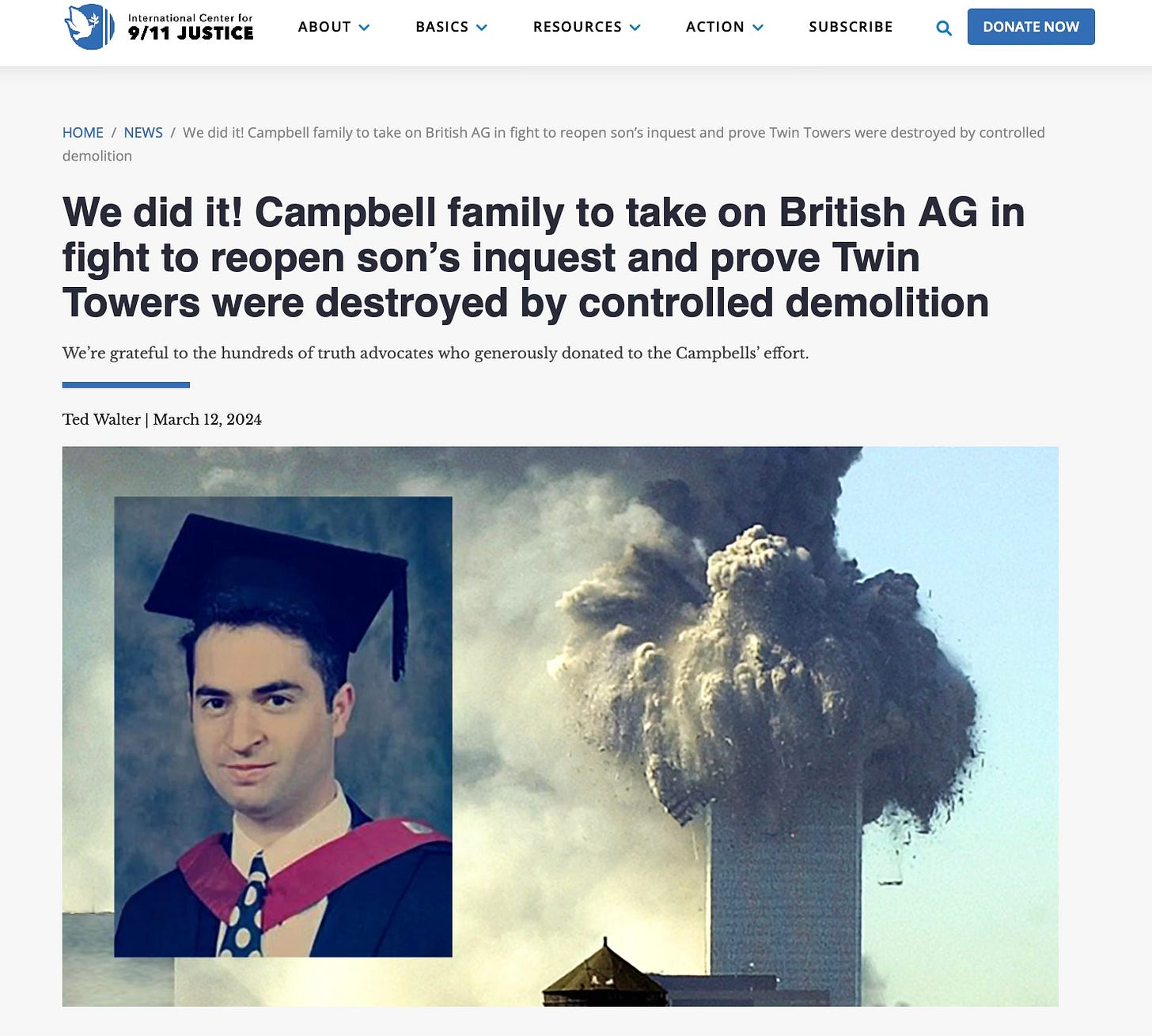


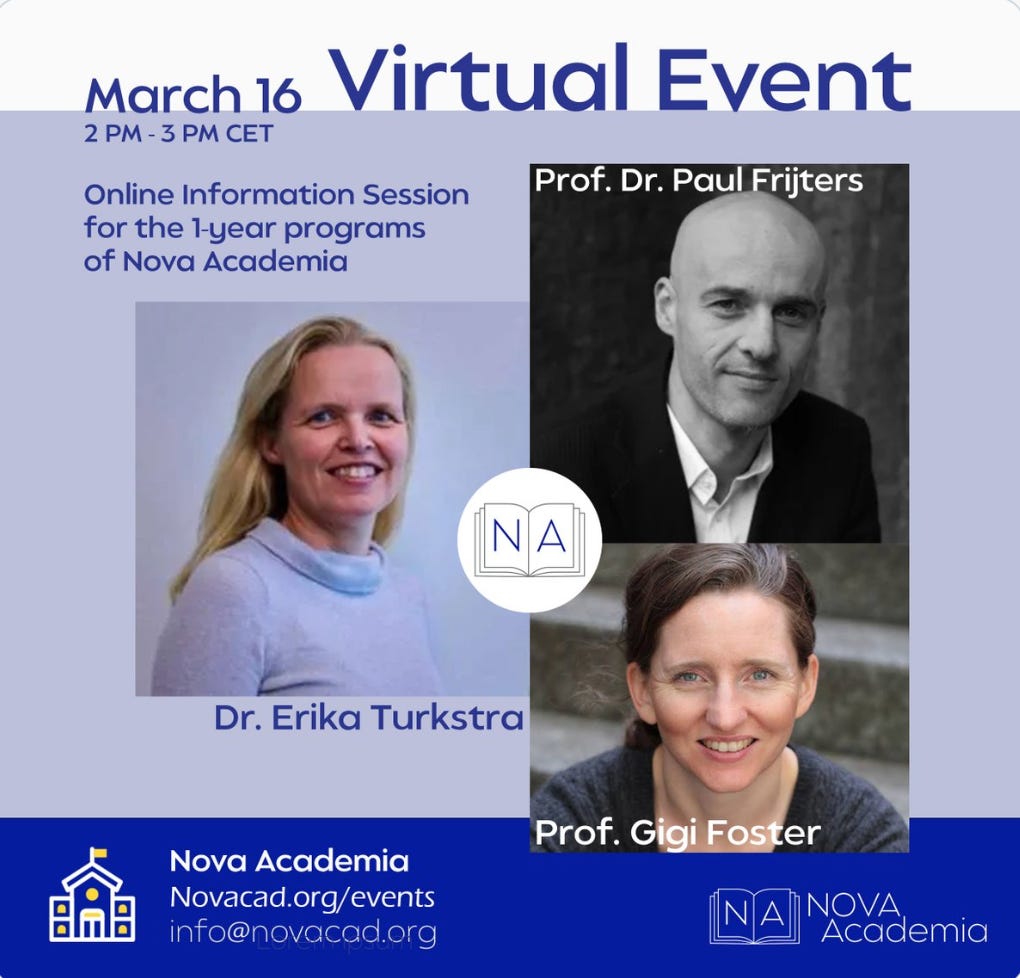









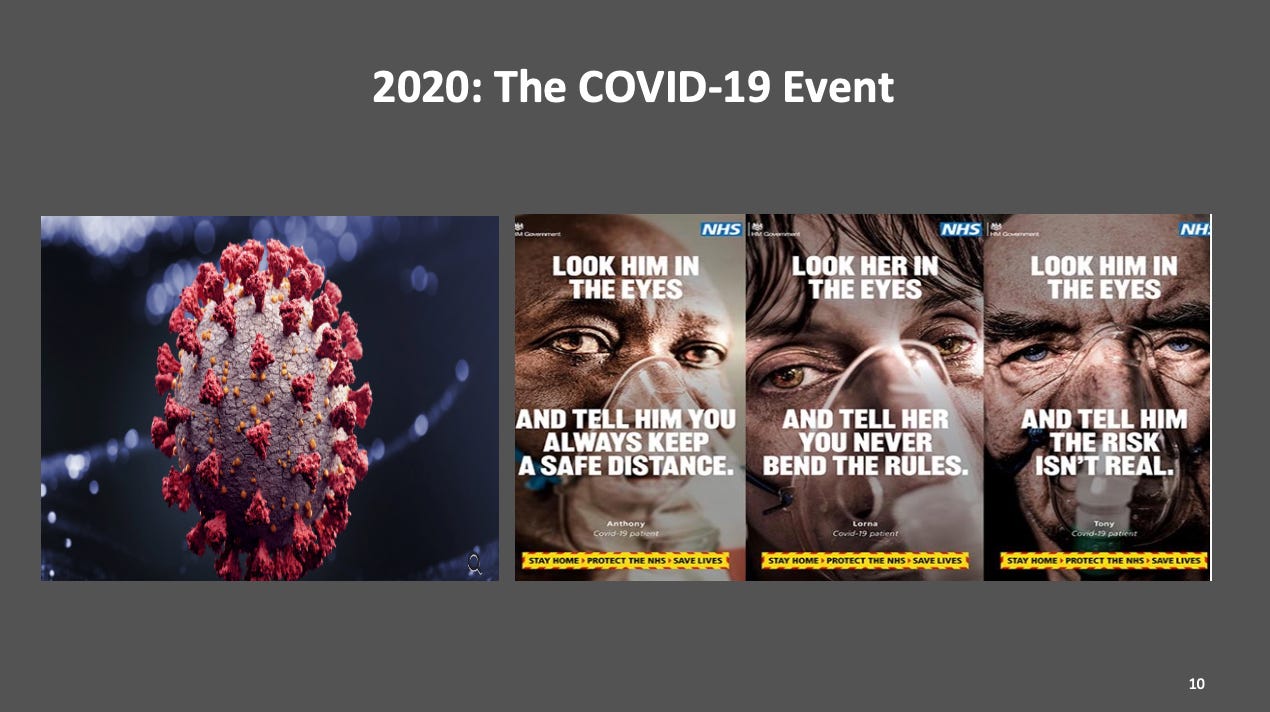

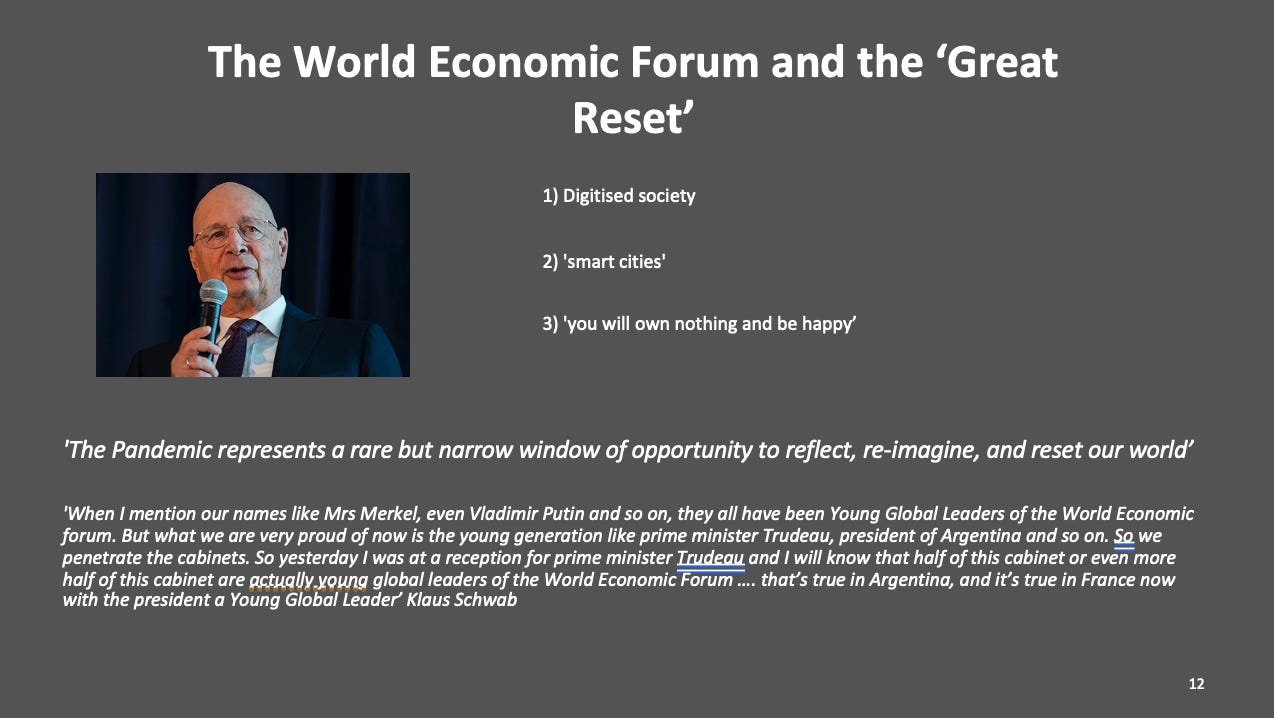


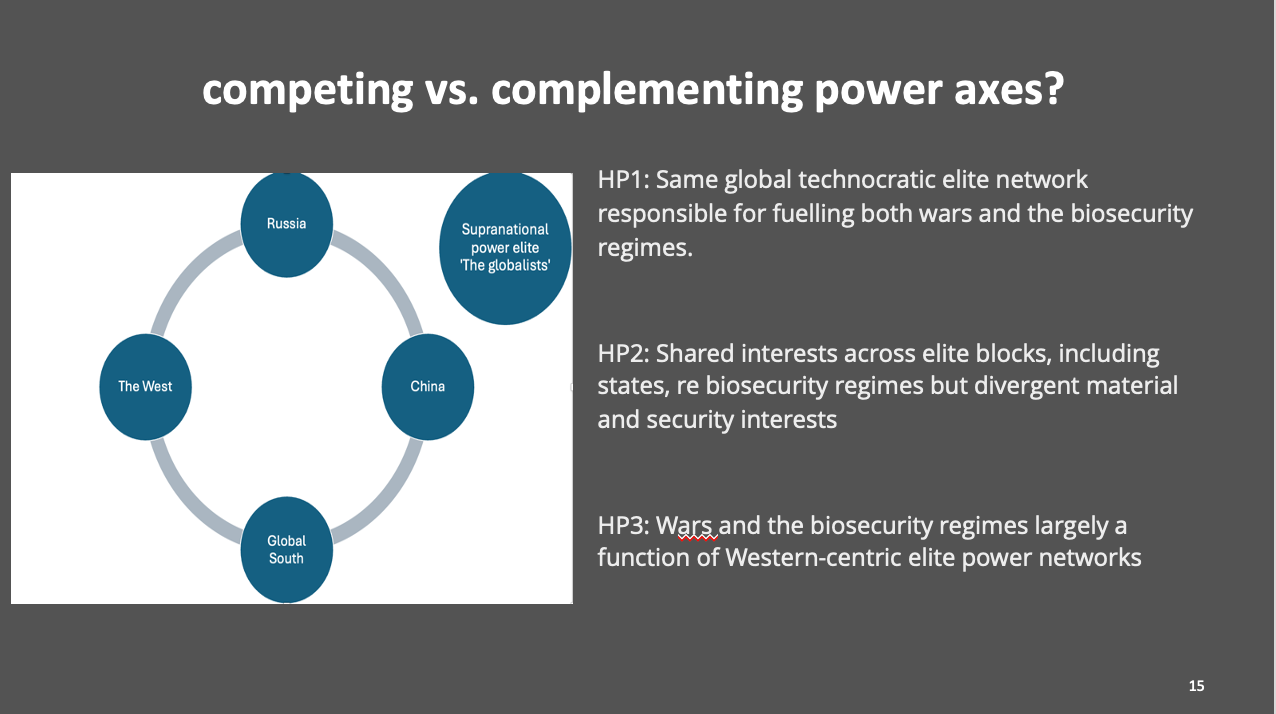

Thank you for your courage Piers and I hope more of your colleagues will join you in this very important work
I stopped smoking pot when they made it legal...